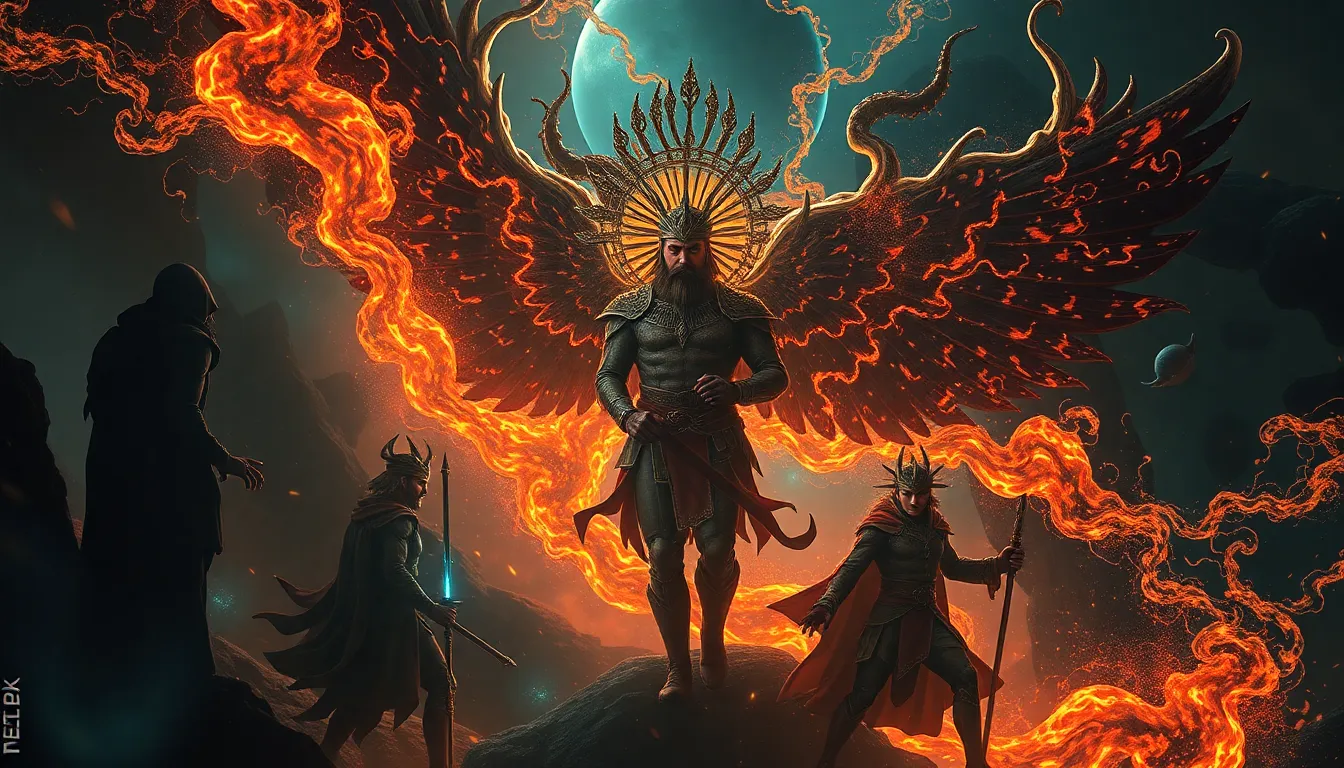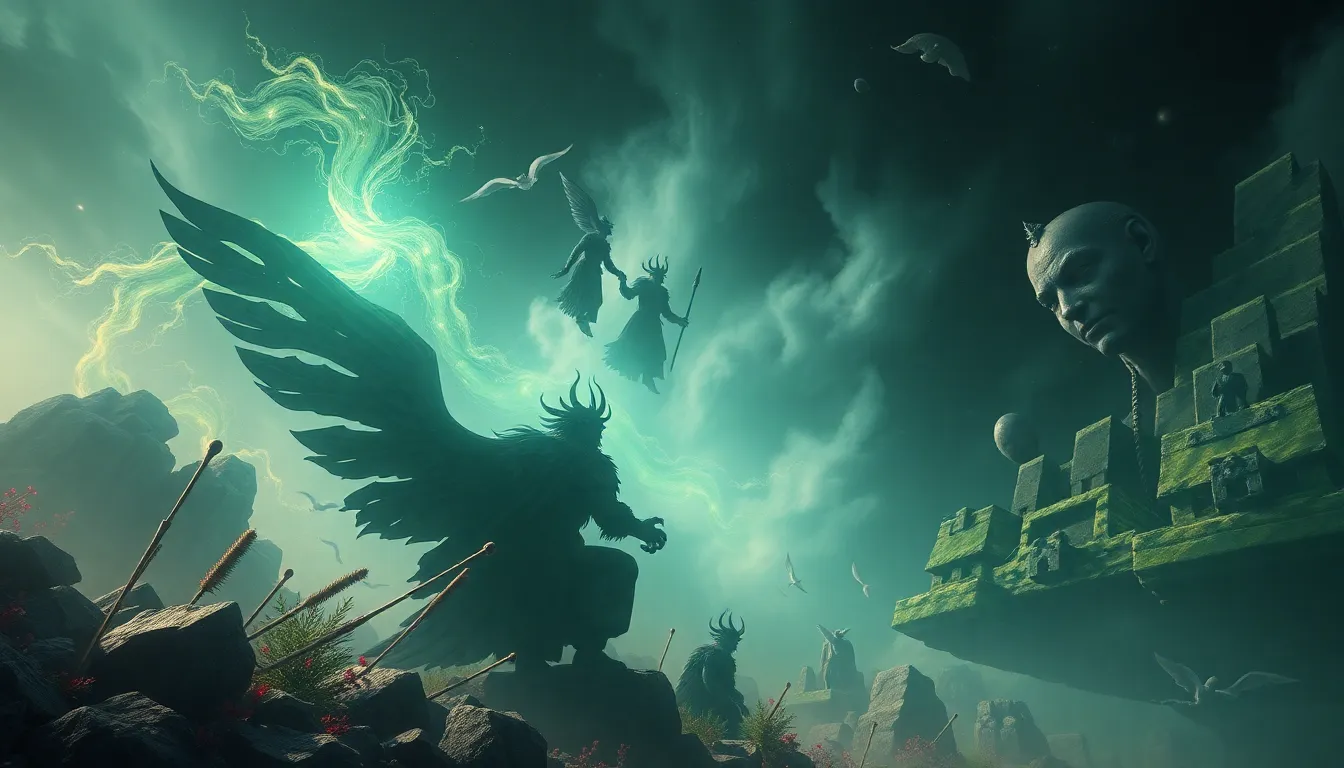Cultural Hero Myths: The Stories That Challenge Our Beliefs
1. Introduction to Cultural Hero Myths
Cultural hero myths are narratives that feature protagonists who embody the values, beliefs, and ideals of a particular society. These heroes often undertake extraordinary journeys, confronting and overcoming challenges that reflect the struggles and aspirations of their cultures. The importance of these myths lies in their ability to shape societal beliefs and values, providing frameworks within which communities understand their identity and purpose.
This article will explore the historical context, characteristics, and psychological impact of cultural hero myths. It will also examine modern reinterpretations, critiques, and the importance of diverse narratives, culminating in a reflection on the future of these powerful stories.
2. Historical Context of Hero Myths
Hero myths have evolved significantly across different cultures throughout history, often rooted in oral traditions that preserve the stories of legendary figures. These narratives serve not only as entertainment but also as moral guides and cultural touchstones.
- Oral Tradition: Many hero myths were initially passed down orally, allowing for variations and adaptations over time.
- Key Historical Figures: Figures such as Gilgamesh in Mesopotamian mythology and Beowulf in Anglo-Saxon literature exemplify the early roots of hero myths.
3. Characteristics of Hero Myths
Hero myths share several common traits and archetypes that define the journey of the hero. These characteristics often include:
- The Call to Adventure: The hero receives a challenge or quest that propels them into the unknown.
- The Mentor: A wise figure often assists the hero, providing guidance and training.
- Trials and Challenges: The hero faces various obstacles that test their resolve and character.
- The Transformation: The hero undergoes significant personal growth, often emerging with newfound wisdom.
The significance of the hero’s challenges and adversaries underscores the moral complexities of their journeys, emphasizing that the path to greatness is fraught with obstacles.
4. The Role of Myth in Cultural Identity
Hero myths play a crucial role in shaping national and cultural identities. They provide a sense of belonging and continuity, connecting individuals to their heritage. For instance:
- Hercules in Greek Mythology: Represents strength and perseverance, embodying the ideal characteristics of ancient Greek culture.
- King Arthur in British Folklore: Symbolizes chivalry and the quest for justice, influencing British cultural identity.
These myths impact communal values and norms, offering a shared narrative that reinforces collective identity.
5. Modern Interpretations and Reimagining of Hero Myths
In contemporary narratives, traditional hero myths are often reinterpreted to reflect modern values and issues. Literature, film, and popular culture have reshaped these stories to resonate with current audiences. Examples include:
- Marvel Cinematic Universe: The reimagining of superheroes such as Iron Man and Black Panther addresses themes of responsibility and representation.
- Literary Revisions: Novels like “Circe” by Madeline Miller offer feminist perspectives on classical stories.
These reinterpretations challenge societal beliefs, inviting audiences to reflect on what it means to be a hero today.
6. Critiques of Hero Myths
While hero myths can inspire, they also have limitations and flaws that warrant examination. These critiques include:
- Idealization of Heroes: The danger of presenting heroes as flawless figures can lead to unrealistic expectations.
- Exclusion of Marginalized Voices: Traditional narratives often overlook the contributions of women and people of color.
- Feminist and Post-Colonial Perspectives: Critical theories challenge the dominant narratives and advocate for more inclusive representations.
7. The Psychological Impact of Hero Myths
Hero myths significantly influence personal identity formation and the development of aspirations. Psychological theories suggest that:
- Hero Worship: Individuals may idealize heroes, seeking to emulate their qualities and achievements.
- Coping Mechanisms: Myths can serve as tools for individuals facing societal challenges, providing frameworks for understanding personal struggles.
8. The Importance of Diverse Narratives
Inclusivity in cultural hero myths is essential for fostering a broader understanding of heroism. By spotlighting diverse narratives, we can challenge prevailing beliefs and stereotypes. Examples of lesser-known heroes from various cultures include:
- Mulan: A Chinese heroine who defies gender norms to save her family and country.
- Harriet Tubman: An American abolitionist who led enslaved people to freedom through the Underground Railroad.
9. The Future of Cultural Hero Myths
As the world becomes increasingly globalized, hero myths are likely to evolve. Predictions for the future include:
- Technological Influence: Social media may facilitate the rapid dissemination of new hero narratives.
- Emerging Heroes: New figures from contemporary social movements, such as climate activists and social justice leaders, may redefine what it means to be a hero.
10. Conclusion: Reflecting on Our Beliefs Through Hero Myths
In summary, cultural hero myths serve as powerful narratives that shape our beliefs and values. By examining their historical context, characteristics, and modern interpretations, we can better understand their role in cultural identity and personal development. As we move forward, embracing diverse narratives will enrich our understanding of heroism, allowing us to reflect more deeply on the stories we tell and the heroes we celebrate.

